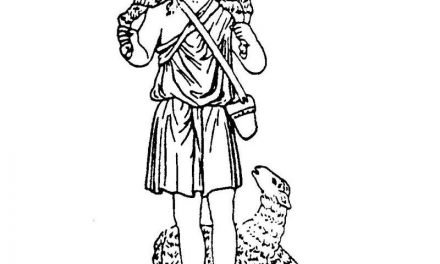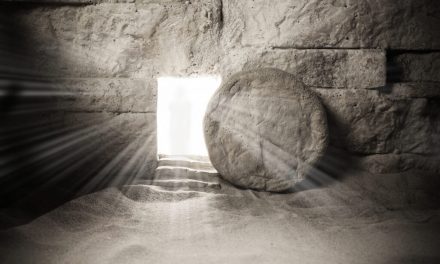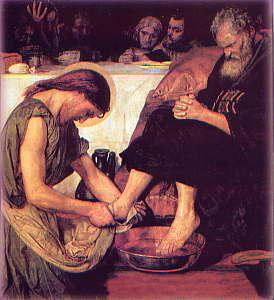Readings:
Ezekiel 2:2—5
Psalm 123:1—4
2 Corinthians 12:7—10
Mark 6:1—6
For most of us, the Fourth of July was acknowledged liturgically last Sunday, with perhaps a patriotic hymn of some sort (in my case, The Battle Hymn of the Republic) and a homily themed around the “Fortnight for Freedom,” calling for the defense of our religious and political liberties. In fact, where I’ve been attending mass, the homilies these past two weeks have almost always mentioned the issue of religious freedom and the responsibility we Catholics have to defend it in the public square. Many might be eager to leave the topic of freedom behind this Sunday, now that the “fortnight” is over, but in my mind the readings this week invite us to explore the mystery of freedom even more deeply, to go beyond its mere socio-political manifestation in search of a more fundamental, theological meaning.
The Church has latched on to the concept of “religious freedom” in its efforts to resist the government’s efforts to compel it to finance—however indirectly—its employees’ use of contraceptive and abortifacient pharmaceuticals. They have done so because religious freedom is a concept with a relatively clear meaning in the public arena, and one that also has more-or-less uncontested legal backing. Yet as I and several others on this blog have contended, the category in moral theology most apposite to this particular case is not really “freedom” but rather “cooperation with evil.” Technically speaking, the Department of Health and Human Services is not threatening the freedom of Christians or the Church to act according to their conscience and carry out their vocation; it is simply limiting the societal parameters within which it may do so.
The most fundamental meaning of “freedom” is the mysterious capacity God has given us for truly voluntary action. Unlike a rock, plant or insect (and I’ll leave aside dolphins and chimpanzees for now), a human being can choose her course of action such that she herself is the principle of her action. When we ask why a rock or insect acted a certain way, we immediately look for reasons and principles outside them for our answer; but with a human person, we can and usually do look for an explanation within the agent that is acting. Humans share the various inclinations and causal frameworks of these other non-rational agents, but there is something more in us that rises above these mechanisms and provides us with a certain domain of indeterminacy in which we can move ourselves to act one way or another, in concert with (but not wholly determined by) the world around us.
There is another, derivative meaning of freedom, however, which refers to the conditions required for something’s full actualization. For example, it is more than mere analogy to say that free-range chickens are afforded greater “freedom” than their caged, stacked counterparts in a lightless warehouse. Or when my children catch an insect and confine it within an old sour cream container, they are truly depriving it of the “freedom” it needs to fully actualize its nature. In my mind, the Church’s current confrontation with the civil authority is more about “freedom” in this latter sense. The government is threatening to circumscribe the societal parameters within which the Church may carry out her mission and actualize her “nature” as the Body of Christ in the world. I do not mean in any way to downplay the injury or injustice of this policy, but I do think it is helpful to remember that there is a deeper meaning of freedom that cannot be threatened or abolished by political oppression, disenfranchisement or misfortune of any sort.
The mystery of human freedom is that it can authentically respond to divine freedom. Being a Thomist by training and temperament, I admit that I sometimes too quickly pass over the profundity of this mystery. Yes, the human will is a genuine motive principle which can freely respond to God the Creator, but even amidst this act it remains a secondary cause, moved to act by operative grace. Yet the mystery manifests itself in the effects of this grace: namely that operative grace can become cooperative grace. Our will can co-operate with the divine will; and not only that, but this co-operation does not diminish or abolish our proper freedom but rather brings it to perfection. That is the ultimate theological meaning of freedom.
The readings for today express that ultimate meaning as it plays out—both in its positive and negative dimensions—within the history of salvation. We see it most poignantly in the Gospel, I think, which depicts Jesus’ return to his “native place.” He is there with his disciples on the Sabbath, and when he begins to teach the people in the synagogue, Mark reports that “many who heard him were astonished.” Yet their astonishment quickly turns into offense when they begin to place them in their own context, as one of their own, thereby closing themselves off from what he had to reveal to them. The truly remarkable thing is not so much that they rejected him but that their rejection prevented him from performing any “mighty deed” there. And not only that, but also that Jesus was “amazed at their lack of faith.”
It is not enough for Jesus to show up and teach. It is not even enough for us to be astonished by his teachings. Like the rich young ruler, we may encounter Jesus and hear his call, but in the end it is our choice to follow him or to turn away. We are free to embrace him as Lord or to ridicule him as a “son of Nazareth,” a peasant carpenter from an ancient backwater. What is more, our freedom can apparently affect the scope of God’s action in the world: not just here, but throughout the Gospels Jesus’ miracles are linked with the faith of their recipients. Where the centurion said it was enough for him to “say the word,” Jesus’ healing power was unlocked; whereas here in Nazareth the people see only “Mary’s son”—poor trash, hick, poser—and their scorn renders impotent the source of life walking in their midst. One wonders why Jesus bothered returning home: didn’t he know what would happen? Didn’t he realize it would be futile? Yet Mark says “he was amazed at their lack of faith.”
The great mystery of human freedom is on display here, the mystery that impelled the prophets time and again to reach out to rebellious Israel to bring her back into covenant. God seeks us out, implores us, entices us; but why? Why not take us by force? Why not teach us “townies” a lesson, and make us respond properly so as to open the way for his “mighty deeds”? It would be for our own good, would it not? I think Augustine offers the best and most succinct answer to this question: Qui creavit te sine te, non iustificabit te sine te—“He who created you without you will not justify you without you.”
The God who created our freedom created us to actualize that freedom by offering ourselves freely and totally to Him. The divine freedom does not and will not do violence to our own, but rather it perfects us as free persons so as to render us capable of participating in the eternal communion of love that is the divine life. That we can do so is a mystery infinitely beyond our capacity to comprehend, and yet in the daily, moment-by-moment exercise of our freedom we encounter a foretaste of that eschatological destiny in the personal communion it makes possible with others here and now, and in the “mighty deeds” of God’s power (yes, even now) to which it opens the way.



